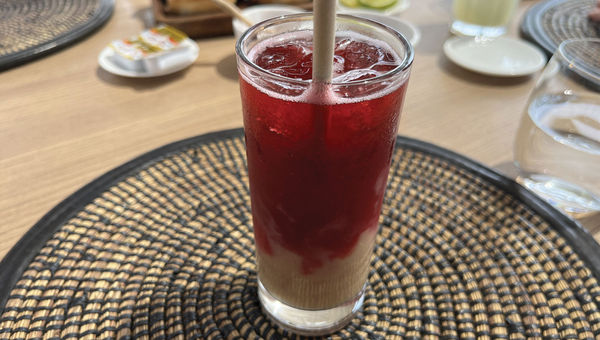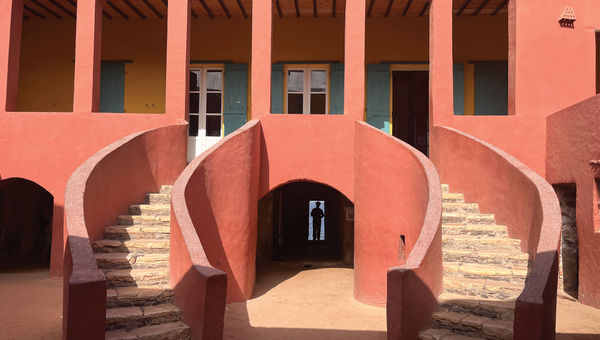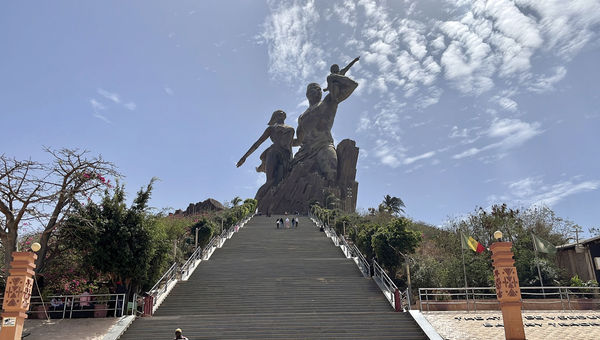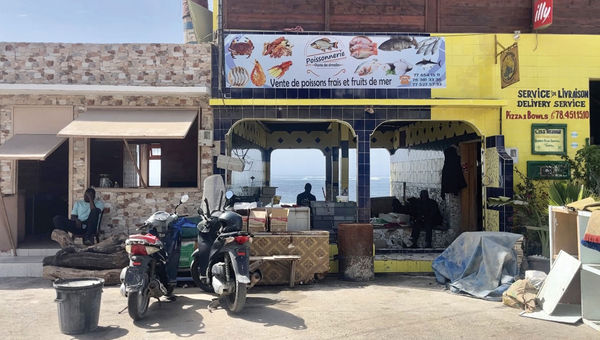
Nicole Edenedo
Longer trips continue to be a big trend, and whether it's booking back-to-back river cruises or spending more time on land in the destination and surrounding regions, many river cruisers want lengthy, more immersive trips.
When it comes to land experiences, pre- and post-river cruise extensions are an especially great way for travelers to get a better feel of the destination.
And the two overnight stays I had earlier this year at the beginning and end of my West Africa trip with Variety Cruises, which was a hybrid ocean-river itinerary, provided me with time to briefly get to know Senegal's coastal capital city of Dakar, and bookmark all the things that I would want to do whenever I go back.
Terrou-Bi, a sub-Saharan oasis
My 10-day Rivers of West Africa trip began and ended with a hosted stay at Terrou-Bi, a sprawling luxury five-star hotel and resort in Dakar that certainly lives up to its resort-style promises. (Variety doesn't include pre- or post-cruise stays in its pricing, so advisors and travelers must book the property independently.)
The rooms are spacious, the lounge and common areas are plenty, and there's more than one place to grab a bite.
At La Terrasse, Terrou-Bi's main restaurant, guests can sit down for a mix of light and hearty meals that range from traditional Senegalese dishes like theiboudienne, a rice and marinated fish dish, to more universal menu items like ribeye steak.
It's where I tried what ended up being one of my favorite culinary discoveries in Senegal: A drink that's pretty much like an Arnold Palmer, made from bissap, which is a sweet hibiscus juice, and the creamy, smoothie-like bouye, which is made from the sap of baobab trees.
It was delicious. More importantly, it was refreshing: I believe the temperature was somewhere near 100 degrees Fahrenheit the day I arrived.
Meanwhile, Le Cote Ouest is an indoor and outdoor lounge with a dining menu featuring small plates and is open until about 1 a.m. every night, making this a good spot for midnight snacks.

At La Terrasse, a restaurant at the Terrou-Bi resort, the author tried a drink that's similar to an Arnold Palmer that was delicious -- and more importantly, refreshing. Photo Credit: Nicole Edenedo
Elsewhere on the property is a casino, a large swimming pool and a private beach, which I was told by staff is a rarity since most resorts along the coast here aren't located on the beach like Terrou-Bi.
That's why Terrou-Bi's biggest and brightest feature, in my opinion, is the private boats it has available for guests to reserve for all sorts of activities, including scenic sailings, fishing trips and trips to Goree Island, which is what I took advantage of during my stay. Half-day cruises that include Goree start at $548.
A visit to Goree Island
I hopped on one of Terrou-Bi's private boats with my tour guide for the afternoon, and we made our way to the historic Goree Island, a 20-minute ride off the coast of Dakar.
If I hadn't had been on Terrou-Bi's boat, I could have taken the public ferry from the Port de Dakar terminal, not far from the hotel.
Goree Island is a must when visiting Dakar. Travelers interested in learning about the island's history as one of the largest slave trading centers on the African coast during the Atlantic slave trade should head to the House of Slaves museum.

Travelers interested in learning about Goree Island's history as one of the largest slave trading centers on the African coast should head to the House of Slaves museum. Photo Credit: Nicole Edenedo
The museum offers a look at the stark contrasts between where slaves were kept in the quarters below and where slave owners lived in leisure above them. The Door of No Return is particularly moving, as the remnants of a doorway indicate the final exit for slaves leaving the island before boarding ships bound for foreign lands and a life of servitude (or death, if they didn't survive the trip).
Beyond the museum, expect to see neighborhoods filled with colorful, colonial style houses, markets and beachside seafood restaurants.
African Renaissance Monument
Another stop I made while I was in Dakar happened on the tail end of my trip, during my post-cruise overnight stay at Terrou-Bi.

The African Renaissance Monument is a larger-than-life bronze statue that sits atop the hills of Collines des Mamelles. Photo Credit: Nicole Edenedo
The African Renaissance Monument is a larger-than-life bronze statue that sits atop the hills of Collines des Mamelles. Erected in 2010, it's a controversial statue because of the costs that went into its construction (reportedly coming in at around $27 million).
It is a majestic sculpture to see in person and depicts a man holding a woman and child overlooking the city and the sea. It symbolizes prosperity and the African Renaissance, a concept that African people will overcome challenges and achieve great heights in culture, sciences and the economy.
There is a tall set of stairs that lead up to three bases of the sculpture, and travelers can walk around for free or pay to go inside the sculpture.
Once I took in the sculpture, I hopped back in the private transfer the hotel had arranged for me and headed toward a popular beach spot in Dakar.
The Almadies waterfront area
The Almadies, or Point Almadies, is a popular waterfront area known for tourist shops, seafood restaurants and oceanfront dining. Some of the staff at the hotel recommended coming here, and it was a nice alternative to the hustle and bustle of the downtown and the market area, which I had visited earlier that day.

The Almadies, or Point Almadies, is a popular waterfront area known for tourist shops, seafood restaurants and oceanfront dining. Photo Credit: Nicole Edenedo
There are a number of local food stands and restaurants in this area, but there's also a luxury hotel that offers more familiar dining options for western travelers.
There are a few chairs and benches scattered on the beach, and before I left I took a seat and looked out over shoreline. Apparently this is a popular place for surfers, but I didn't spot any during my visit.